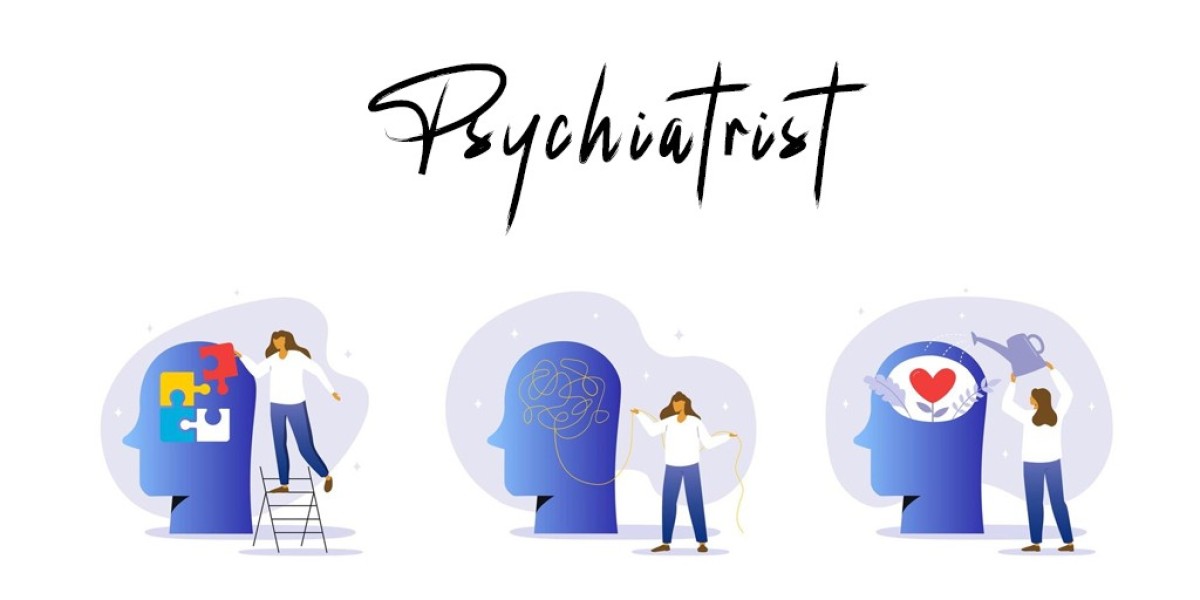Child psychiatrists play a crucial role in addressing the mental health needs of children and adolescents. As the understanding of pediatric mental health has evolved, so too has the importance of specialized professionals who can provide expert assessment, diagnosis, and treatment. In this comprehensive article, we will explore the field of child psychiatry, examining the significance of children's mental health, the role and responsibilities of child psychiatrists, their specialized training, common mental health issues in children, and the evolving landscape of child mental healthcare.
The Significance of Children's Mental Health
The mental health of children and adolescents is a fundamental component of their overall well-being and development. Healthy mental and emotional functioning in childhood sets the stage for positive outcomes in adulthood. Conversely, untreated mental health issues during childhood can lead to significant challenges and impairments in various aspects of life.
Foundation for Lifelong Well-being: A child's early experiences and mental health shape their emotional regulation, social skills, and cognitive development. Healthy mental health in childhood can contribute to greater resilience, self-esteem, and adaptive coping strategies in adulthood.
Academic Success: Mental health plays a pivotal role in a child's ability to learn, concentrate, and succeed academically. Untreated mental health issues can hinder educational attainment and future career prospects.
Interpersonal Relationships: Children with healthy mental health are better equipped to form positive relationships with family members, peers, and adults. Mental health problems can lead to social isolation and difficulties in building meaningful connections.
Physical Health: There is a well-established connection between mental health and physical health. Children with untreated mental health issues may be at a higher risk of developing physical health problems later in life.
Preventing Long-term Issues: Early intervention and treatment for mental health problems in childhood can prevent more severe mental health issues from developing in adulthood.
The Role and Responsibilities of Child Psychiatrists
Child psychiatrists are medical doctors who specialize in the evaluation, diagnosis, and treatment of mental health disorders in children and adolescents. They play several critical roles in children's mental healthcare:
Assessment and Diagnosis: Child psychiatrists are trained to assess and diagnose a wide range of mental health conditions, including mood disorders, anxiety disorders, attention-deficit/hyperactivity disorder (ADHD), autism spectrum disorders, and more. They use clinical interviews, standardized assessments, and medical evaluations to make accurate diagnoses.
Treatment Planning: Child psychiatrists develop individualized treatment plans tailored to the unique needs of each child or adolescent. These treatment plans may include psychotherapy, medication management, and other evidence-based interventions.
Medication Management: When necessary, child psychiatrists prescribe and monitor psychiatric medications. They carefully consider the potential benefits and side effects of medications and make adjustments as needed to ensure optimal outcomes.
Psychotherapy: Many child psychiatrists also provide psychotherapy (talk therapy) to children and adolescents. They use various therapeutic approaches to help young patients address emotional and behavioral challenges.
Crisis Intervention: Child psychiatrists are prepared to intervene in mental health crises, such as situations involving suicidal ideation, self-harm, or severe behavioral disturbances. They collaborate with other healthcare professionals to ensure safety and appropriate care.
Family Involvement: Recognizing the critical role of family in a child's mental health, child psychiatrists often work closely with parents and caregivers. They provide guidance and support to families, helping them understand and manage their child's condition.
Advocacy and Education: Child psychiatrists are advocates for children's mental health at the community and policy levels. They participate in public awareness campaigns, engage in research, and contribute to the development of best practices in pediatric mental healthcare.
Specialized Training of Child Psychiatrists
Becoming a child psychiatrist involves extensive education and training. The journey typically includes the following steps:
Undergraduate Education: Aspiring child psychiatrists complete a bachelor's degree in a relevant field, such as biology, psychology, or pre-medicine.
Medical School: After completing their undergraduate degree, individuals attend medical school, where they earn either a Doctor of Medicine (M.D.) or a Doctor of Osteopathic Medicine (D.O.) degree.
General Psychiatry Residency: Following medical school, individuals pursue a general psychiatry residency program, which typically lasts four years. During this time, they receive comprehensive training in adult psychiatry.
Child and Adolescent Psychiatry Fellowship: After completing their general psychiatry residency, individuals interested in child psychiatry undertake a child and adolescent psychiatry fellowship, which typically lasts two years. This fellowship provides specialized training in diagnosing and treating mental health conditions in children and adolescents.
Board Certification: Many child psychiatrists seek board certification through organizations like the American Board of Psychiatry and Neurology (ABPN). Board certification involves passing rigorous exams and demonstrating expertise in child and adolescent psychiatry.
Continuing Education: Child psychiatrists engage in ongoing professional development and continuing education to stay abreast of the latest research, treatment modalities, and ethical guidelines in pediatric mental healthcare.
Common Mental Health Issues in Children
Child psychiatrists are trained to diagnose and treat a wide range of mental health conditions that can affect children and adolescents. Some of the most common issues they address include:
Attention-Deficit/Hyperactivity Disorder (ADHD): ADHD is characterized by symptoms of inattention, hyperactivity, and impulsivity. Child psychiatrists can provide assessments, medication management, and behavioral interventions to help children with ADHD succeed academically and socially.
Anxiety Disorders: Anxiety disorders, such as generalized anxiety disorder, social anxiety disorder, and specific phobias, are prevalent among children and adolescents. Child psychiatrists offer therapeutic interventions to reduce anxiety and improve coping skills.
Mood Disorders: Mood disorders like depression and bipolar disorder can significantly impact a child's emotional well-being. Child psychiatrists evaluate symptoms and provide treatment options, including therapy and medication when appropriate.
Autism Spectrum Disorders (ASD): Child psychiatrists play a vital role in diagnosing and managing autism spectrum disorders. Early intervention and therapy are key to supporting children with ASD and their families.
Behavioral Disorders: Behavioral disorders, such as oppositional defiant disorder and conduct disorder, can lead to disruptive and challenging behaviors. Child psychiatrists work with families to develop strategies for managing these behaviors and improving family dynamics.
Trauma and Post-Traumatic Stress Disorder (PTSD): Traumatic experiences can have a lasting impact on a child's mental health. Child psychiatrists provide trauma-informed care and evidence-based interventions to help children cope with trauma and PTSD.
Eating Disorders: Conditions like anorexia nervosa and bulimia nervosa can affect children and adolescents. Child psychiatrists collaborate with a multidisciplinary team to address these complex disorders.
Developmental Disorders: Children with developmental disorders, such as intellectual disabilities or communication disorders, may require specialized support and interventions to maximize their potential.








